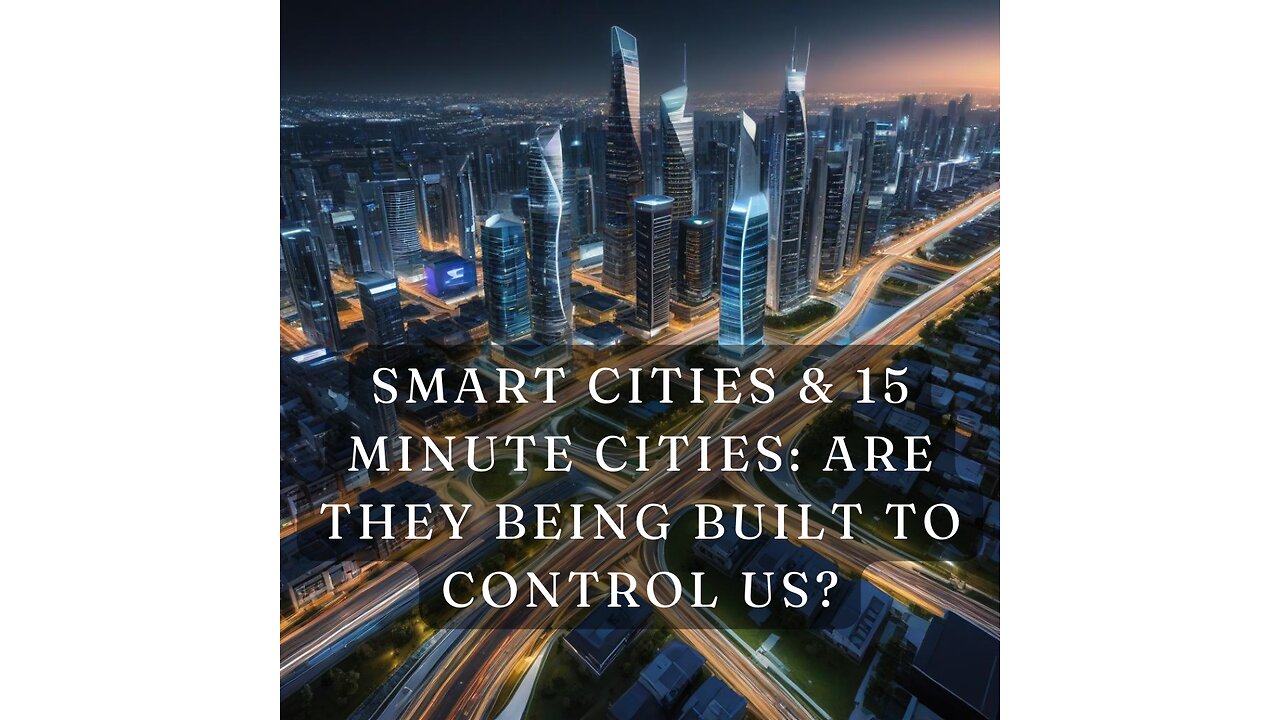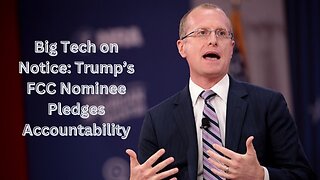Premium Only Content

Breaking Boundaries: Navigating the Controversies of Smart Cities and 15-Minute Living!
When you think of Smart Cities and 15-Minute Cities, you might envision futuristic landscapes where technology seamlessly blends with sustainability, offering efficient, eco-friendly urban environments. Imagine strolling down streets lined with greenery, with every essential amenity just a short walk or bike ride away. It’s a vision of urban life that promises convenience, connectivity, and environmental consciousness.
But as with any vision of the future, there are complexities and challenges beneath the surface. Dive into the world of Smart Cities, and you'll encounter a realm where 5G and artificial intelligence converge to create a network of interconnected devices and sensors. This network aims to enhance efficiency and quality of life, yet it sparks debates about privacy and surveillance concerns due to the vast collection of data.
Consider the ambitious Neom project in Saudi Arabia, which aims to build a sustainable, high-tech city with innovative green transportation solutions like flying taxis. While Neom showcases advanced infrastructure and a commitment to data-driven decision-making, it's also drawn criticism for the country's continued reliance on fossil fuel exports, highlighting a tension between environmental goals and economic interests.
Meanwhile, 15-Minute Cities advocate for a more human-centric approach to urban planning, emphasizing accessibility and reducing reliance on long commutes. However, critics worry about potential limitations on freedom of movement and privacy implications, raising questions about the balance between convenience and personal liberties.
Intriguingly, the concept of 15-Minute Cities has even sparked conspiracy theories, such as claims that wildfires in Maui were ignited by directed energy weapons as part of a government scheme to transform the island into a smart enclave. While these theories remain speculative, they underscore the significance of public perception and skepticism surrounding urban development initiatives.
As we navigate the discourse around Smart Cities and 15-Minute Cities, it's essential to recognize that these concepts are fluid and subject to revision. Some cities are reevaluating their plans, maintaining a focus on walkability while imposing restrictions on private vehicles in response to community feedback.
In conclusion, the journey towards realizing Smart Cities and 15-Minute Cities is multifaceted, marked by both promise and pitfalls. While these concepts offer potential for enhancing urban life, they also demand careful consideration of ethical, social, and environmental implications. Ultimately, striking a balance between innovation and individual freedoms will be crucial as we shape the cities of tomorrow.
-
 1:33
1:33
Conspiracy Chronicle
11 months agoTrump Declares War on Big Tech Censorship with Bold FCC Pick
1551 -
 3:07
3:07
Memology 101
11 hours ago $0.23 earnedImagine having the AUDACITY to defend this SH*T...
2.78K12 -
 11:13
11:13
MattMorseTV
18 hours ago $42.50 earnedRINO PLOT just got SHUT DOWN.
54.8K145 -
 31:07
31:07
Camhigby
3 days agoLeftist Claims Gender Goes By Identity, Then FLOUNDERS When Asked This Question!
152K84 -
 LIVE
LIVE
Shield_PR_Gaming
4 hours ago11/22/25 I Let's Level up on Battlefield and other games as well!
232 watching -
 10:21
10:21
MetatronGaming
10 hours agoI spent $200 for this Premium PS5 Controller. Is it worth it?
16.6K7 -
 13:46
13:46
Nikko Ortiz
18 hours agoYour Humor Might Be Broken...
48.5K5 -
 1:20:58
1:20:58
CopperheadRoadPodcast
1 day agoEPISODE 91: DAVE SMITH HAS A TRIGGERNOMETRY PROBLEM! GUEST Larry Oberheu
481 -
 26:35
26:35
The Bryce Eddy Show
20 hours agoDaniel Harmon: The Storytelling Genius Behind Tuttle Twins
415 -
 46:47
46:47
The Heidi St. John Podcast
1 day agoFan Mail Friday: Holding the Line in a Divided Culture
403